At the end of March, we met with a group of group of students from Reagan High School who were working in or looking for internships in STEM fields. We heard three key concerns:
- Students want a chance to exercise the skills they’ve been developing
- Students want the internship to be a chance to learn
- Outside a few narrow fields, STEM internship opportunities for high school students are difficult to find
If students don’t get a chance to grow and learn, an internship is “just a job”, and those take a lot less effort to find.
In our May session we’ll dig in to the opportunities for, and barriers to, creating effective STEM internships for high school students– what it takes to create internship experiences that students value, how we raise the visibility/number of internships available in a broader range of STEM fields, and what does it look like when the goal of an internship program is talent development rather than simply low cost labor.
Come share ideas with your colleagues at public, private, and charter schools from across greater Milwaukee, as well as some folks outside of K12 who offer an interesting perspective on the topic.
Agenda
5:30 – 6:00 Grab something to eat and drink, say hello
6:00 – 8:30 Let’s learn from each other.
Food and beverage will be provided. There is no charge for participation but space is limited!
Featured Participants
Among others, you’ll have a chance to talk with:
Tamera Coleman– Internship Coordinator, Milwaukee Public Schools
Tamera is responsible for the development and implementation of a viable internship program at the district level. Tamera spends time facilitating student learning by assisting students to secure appropriate internships to enhance overall academic experience while learning essential skills. Tamera also initiates and builds partnerships with employers to develop student opportunities for endeavors locally. Tamera is also a proud MPS alumni, a mother of 2 young children, a wife of an educator and a Milwaukee native truly committed to youth empowerment.
Matthew Hunt– College & Career Readiness Specialist, New Berlin High School
Matt previously worked as an Account Manager in the Professional Services Division of Aerotek, the largest staffing firm in the country, where he worked with businesses across multiple industries to help them find talent in Accounting/Finance, Supply Chain, Marketing, Customer Service, and Administrative Support. He later served as a School Counselor at New Berlin West for 3 years and took a leadership role with the district’s Career and Service Based Learning Program. During the 2017-18 school year, Matt transitioned into a newly created role as the District’s College and Career Readiness Specialist and now manages Youth Apprenticeship and Internship programs at both New Berlin West and New Berlin Eisenhower high schools.
Ariana Radowicz– University Relations, Rockwell Automation
Ariana leads recruitment for Rockwell Automation’s high school internship programs as well as their scholarship/specialty programs. She also participates in ADVANCE, the company’s young professionals employee resource group and works to build a diverse pipeline of students for Rockwell’s early career programs.
Molly Schuld– Science Teacher, Ronald Reagan High School
Molly is a science teacher and a personal & professional skills teacher at Ronald Reagan High School. She came to Milwaukee through Teach For America and has now been teaching in Milwaukee Public Schools for four years. She holds a Bachelor of Science in Marine and Atmospheric Science and a Master of Education in Educational Policy and Leadership.
Molly also serves as the Ronald Reagan High School’s NAF Director for the Academy of Health Sciences, which involves connecting students to career-based learning experiences in the community. She secures STEM internship opportunities for Reagan’s upperclassmen in Milwaukee-area. Molly has also developed and continues to lead several programs including Reagan’s International Travel Program, SMART Team, and Girls In Technology Program.
Laura Schmidt, Strategic Advisor to the Superintendent – School District of New Berlin
Laura has an MBA (Leadership Studies) from Marquette University. She worked for 15 years for Northwestern Mutual and was responsible for enterprise software, usability testing, and technology research. She served as the Executive Director of an Education Foundation for 4 years before joining the School District of New Berlin as a consultant. She represents the Superintendent in local, regional and state efforts designed to support a strong talent pipeline for the benefit of students as well as the state’s economy. She holds a Scaled Agilist certification to inform strategic planning and implementation efforts.
Erica Steele– Manager, Workforce Development, Froedtert Health
Erica Steele is the Manager of Workforce Development at Froedtert Health focused on driving innovative workforce strategies internally and externally to grow and diversify the healthcare talent pipeline to meet current and future industry needs. This includes collaborating and partnering with educational institutions, workforce agencies, community based organizations, internal stakeholders, and others to identify, engage, train and create pathways for talent to enter and advance in the healthcare field. She provides subject matter expertise on the topics of workforce development, education/training, program development and management, volunteer management, public speaking and fund development.
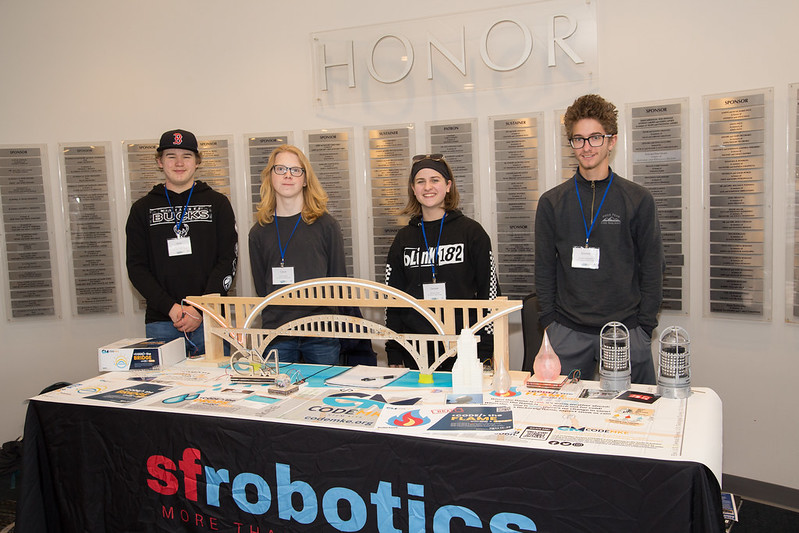
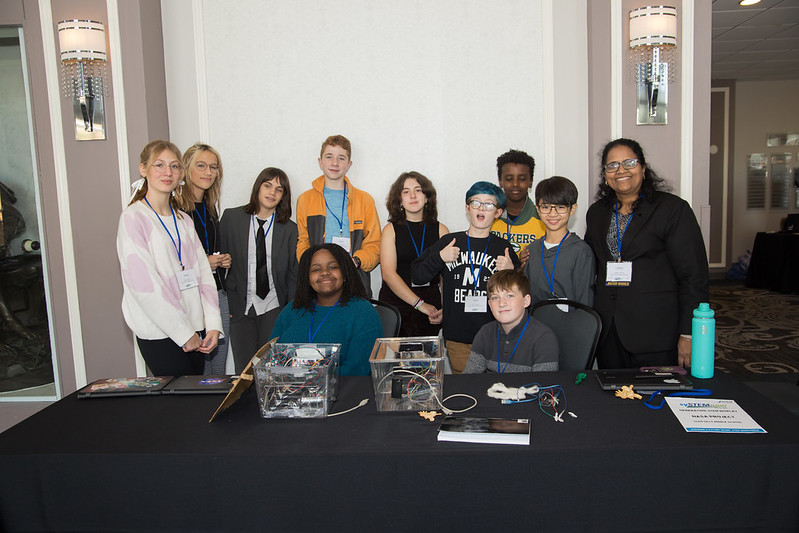
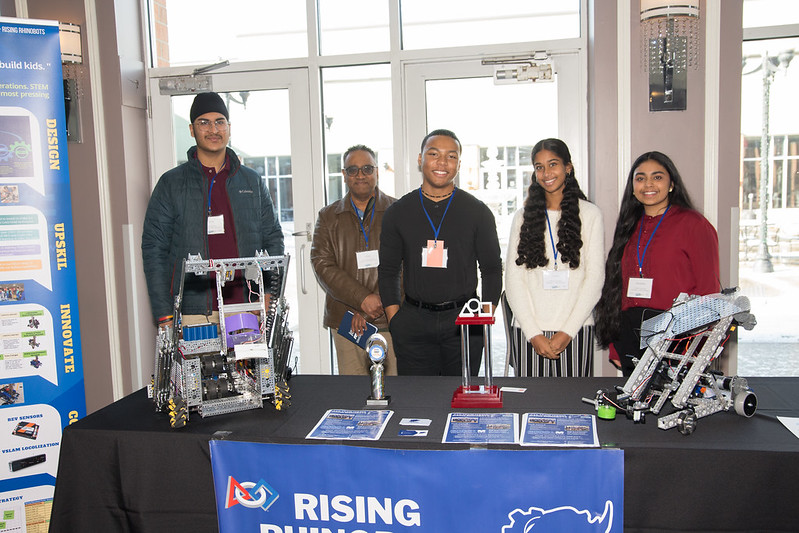
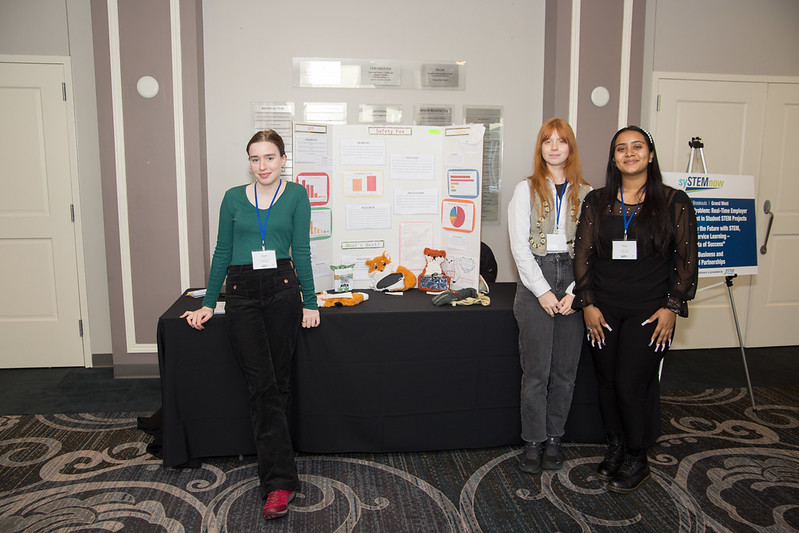


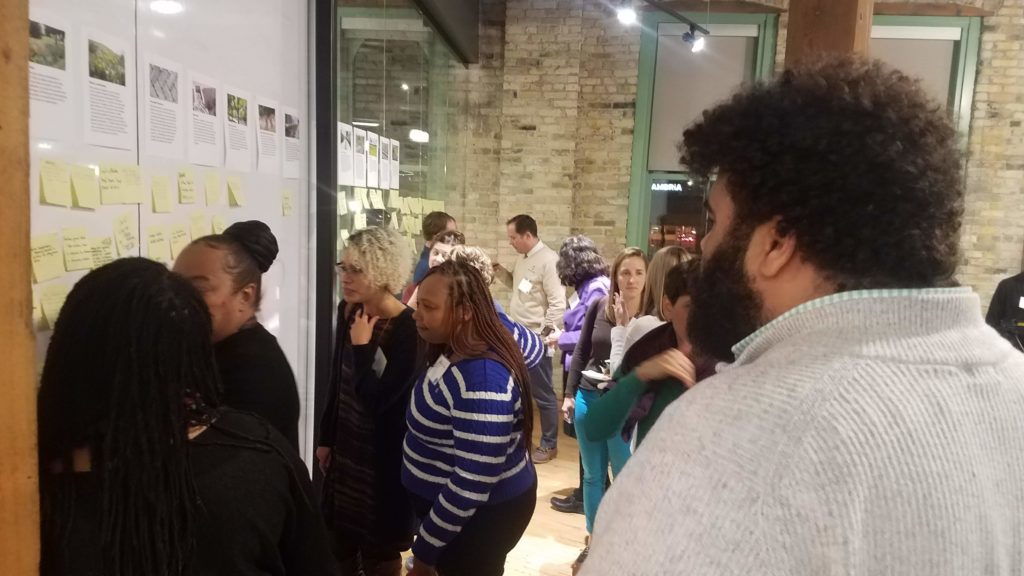
 A leader of agile software development projects at JCI, Amber is a passionate advocate for building high performance teams that look like and have roots in the communities they work in. The practices she uses to manage uncertainty, build trust and, and foster courageous conversations are central to her work. As the spouse of a high school teacher and with two children in MPS, she recognizes the value those practices can offer to both educators and students looking to take on real-world challenges.
A leader of agile software development projects at JCI, Amber is a passionate advocate for building high performance teams that look like and have roots in the communities they work in. The practices she uses to manage uncertainty, build trust and, and foster courageous conversations are central to her work. As the spouse of a high school teacher and with two children in MPS, she recognizes the value those practices can offer to both educators and students looking to take on real-world challenges. Kelsey is Marquette’s representative for engagement in the community, tasked to explore and promote community-engaged opportunities for Marquette students, faculty and staff. Previously she served as the Director of Innovation at the 707 Hub at Marquette University. There she ran business bootcamps for students and community entrepreneurs and helped to build a social innovation ecosystem in Wisconsin. She is naturally curious and enjoys connecting the dots between people, ideas and resources! She was recognized as one of Milwaukee Business Journal 40 Under 40 winners in 2019.
Kelsey is Marquette’s representative for engagement in the community, tasked to explore and promote community-engaged opportunities for Marquette students, faculty and staff. Previously she served as the Director of Innovation at the 707 Hub at Marquette University. There she ran business bootcamps for students and community entrepreneurs and helped to build a social innovation ecosystem in Wisconsin. She is naturally curious and enjoys connecting the dots between people, ideas and resources! She was recognized as one of Milwaukee Business Journal 40 Under 40 winners in 2019.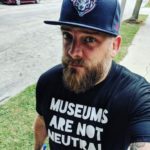 Mike is an interactive designer and former VP and Creative Director of the Betty Brinn Children’s Museum. He currently splits his time between producing museum exhibits and running a small carpentry business out of his shop in Bayview.
Mike is an interactive designer and former VP and Creative Director of the Betty Brinn Children’s Museum. He currently splits his time between producing museum exhibits and running a small carpentry business out of his shop in Bayview. Anamarie is a Multidisciplinary Contemporary artist and artist educator currently based in Milwaukee originally from the deep south . She often intersects social justice, her identity, and interactive education to influence her paintings, installations, sculptures, and performances. With the experiences she has with community and through life itself, she builds her practice to relay that information visually to those interested in learning a variety of topics.
Anamarie is a Multidisciplinary Contemporary artist and artist educator currently based in Milwaukee originally from the deep south . She often intersects social justice, her identity, and interactive education to influence her paintings, installations, sculptures, and performances. With the experiences she has with community and through life itself, she builds her practice to relay that information visually to those interested in learning a variety of topics.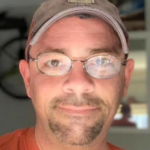 For the past eight years, Jeff has been working in interactive development alongside his business partner Hector Borges, first as the co-founders of Outer Rim, where they produced and released their first game in their first year of school. They operated under the name Outer Rim for four years before rebranding as Foresight Studios. In his role at Foresight Studios, Jeff is focused on creating innovative experiences that leverage new and emerging technologies, including VR, AR, and XR. The company has worked with the Holocaust Museum in Washington D.C. to create a VR demo and developed “
For the past eight years, Jeff has been working in interactive development alongside his business partner Hector Borges, first as the co-founders of Outer Rim, where they produced and released their first game in their first year of school. They operated under the name Outer Rim for four years before rebranding as Foresight Studios. In his role at Foresight Studios, Jeff is focused on creating innovative experiences that leverage new and emerging technologies, including VR, AR, and XR. The company has worked with the Holocaust Museum in Washington D.C. to create a VR demo and developed “ Dionna is a creative professional with extensive experience planning and executing commercial projects centered on graphic design, including brand identity and logo design initiatives. Developed at an early age, some of her artistic and creative abilities include illustration, painting, photography, and graphic arts. Her extensive background in visual and graphic arts has enabled her to serve in the creative arts industry for over 20 years. Her experience also includes the founding of a children’s book imprint, serving as author, publisher, illustrator, and designer. In addition, Dionna serves at ArtWorks for Milwaukee as Lead Artist to high school interns in the graphic design + mental health advocacy program. (website:
Dionna is a creative professional with extensive experience planning and executing commercial projects centered on graphic design, including brand identity and logo design initiatives. Developed at an early age, some of her artistic and creative abilities include illustration, painting, photography, and graphic arts. Her extensive background in visual and graphic arts has enabled her to serve in the creative arts industry for over 20 years. Her experience also includes the founding of a children’s book imprint, serving as author, publisher, illustrator, and designer. In addition, Dionna serves at ArtWorks for Milwaukee as Lead Artist to high school interns in the graphic design + mental health advocacy program. (website: 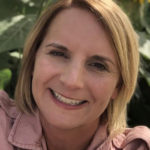 Cindy is passionate about instilling a love of nature, demonstrating the value of community, and embracing the curiosity and wonder in students. A strong advocate for project based learning, Cindy loves teaching children to communicate with their peers, collaborate on designs and solutions, and look to nature for inspiration. This year, The Riveredge School educators are partnering with the talented art educators at Lynden Sculpture Garden to create an integrated, interdisciplinary curriculum that is nature based and aligns with our science and social studies curriculum for every grade level. The arts integrated framework will enable students to explore the intersection of arts, culture and nature across the curriculum.
Cindy is passionate about instilling a love of nature, demonstrating the value of community, and embracing the curiosity and wonder in students. A strong advocate for project based learning, Cindy loves teaching children to communicate with their peers, collaborate on designs and solutions, and look to nature for inspiration. This year, The Riveredge School educators are partnering with the talented art educators at Lynden Sculpture Garden to create an integrated, interdisciplinary curriculum that is nature based and aligns with our science and social studies curriculum for every grade level. The arts integrated framework will enable students to explore the intersection of arts, culture and nature across the curriculum.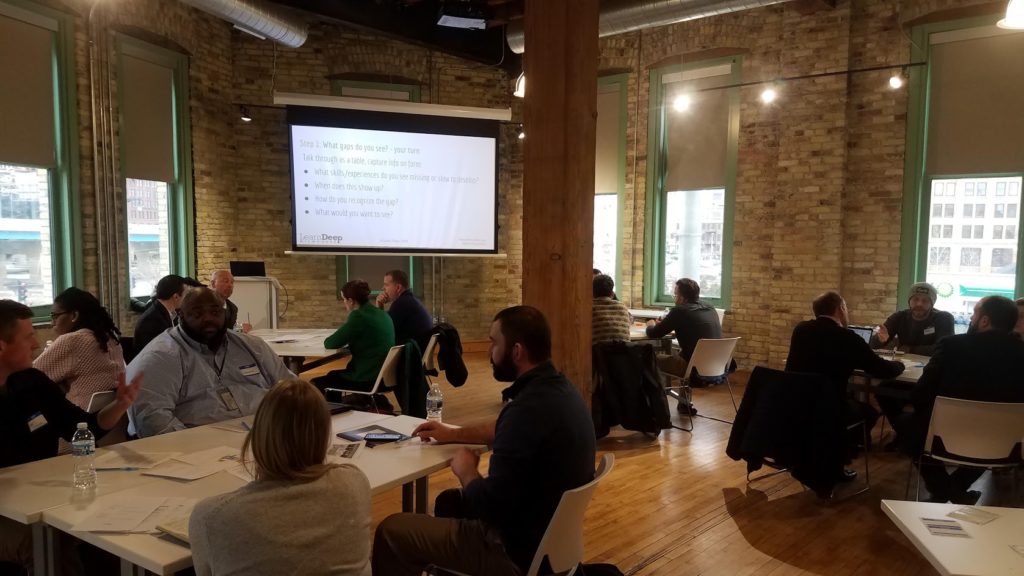
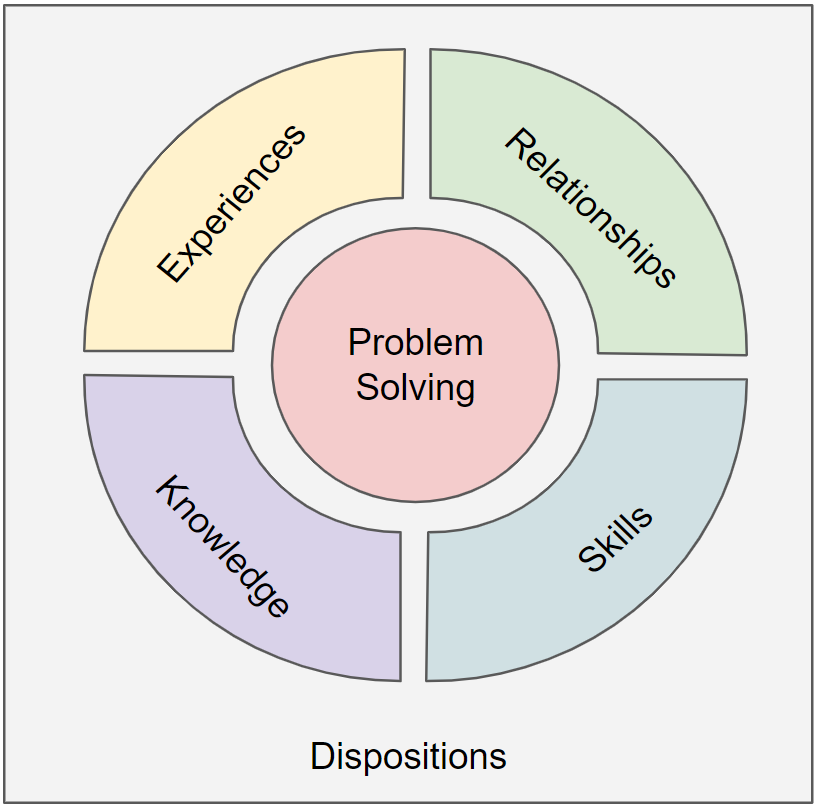
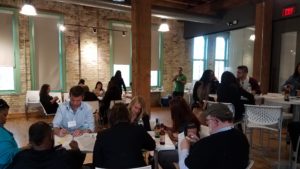 In our May session we explored several issues around creating effective STEM internships for high school students. We began the evening with a review of
In our May session we explored several issues around creating effective STEM internships for high school students. We began the evening with a review of 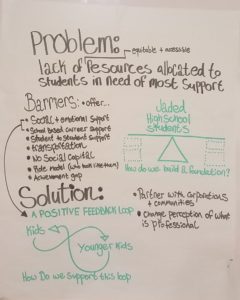 Problem:
Problem: